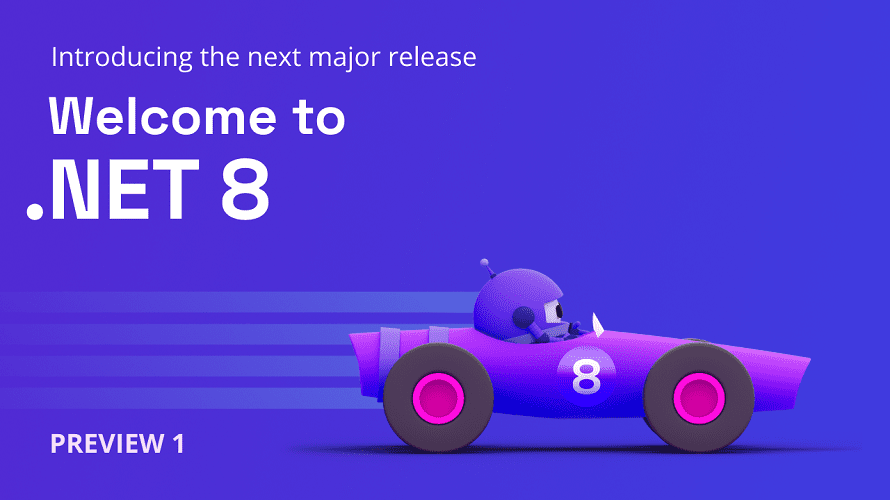Microsoft has released the first preview of .NET 8. In addition to performance improvements, this application framework version should make it easier for cloud-native developers to build applications. The version should also allow for more cross-platform development with MAUI and Blazor.
According to the tech giant, .NET developers should be able to more easily bring their applications to the cloud and scale them up without making concessions. In addition, they should be able to further develop these applications based on actionable data and feedback on the applications already in production. If the development involves implementing microservices architectures and building and deploying containers .NET 8 is better equipped.
Also read: Microsoft adds easy .NET upgrade functionality to Visual Studio
Preview .NET 8
The first preview of .NET 8 offers improvements for container images. For example, by adding Debian 12 as the default distribution environment for container images. This functionality allows containers to be run by non-root users. Also, tagging for containers with the .NET 8 preview is possible.
In addition, several improvements have been made for Linux, such as the ability to build .NET from the dotnet/dotnet repository. Furthermore, new Ubuntu Chiseled images and updates to the minimum baseline targets are added for this purpose.
Cross-platform support
.NET 8 should also bring more cross-platform functionality, particularly for MAUI SDK, Visual Studio tooling and Blazor. This should enable the .NET MAUI framework to build native apps for multiple platforms such as Android, iOS, macOS and Windows based on a single #C codebase.
Also, .NET 8 now supports building hybrid apps using Blazor. This is based on Razor UI components that provide access to native device platforms and can be shared on mobile, via desktops or over the Web. To this end, the quality, stability, performance and integration of SDKs and tooling, among others, will be expanded, Microsoft indicates.
